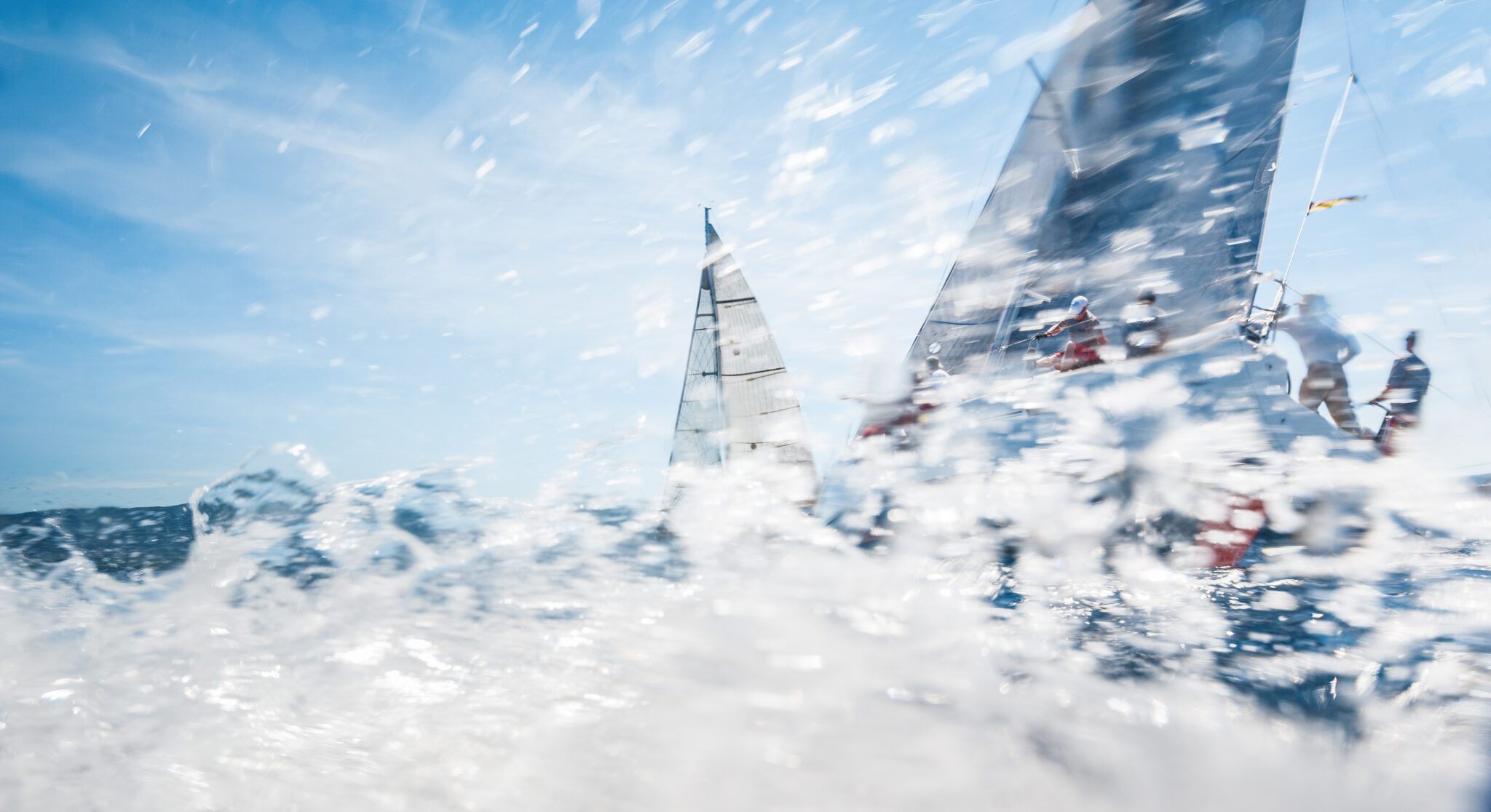Are you concerned that your event won’t be able to achieve the Clean Regattas best practices because you don’t have access to facilities? Maybe your sailing organization is a club in name only and doesn’t have a physical clubhouse, or perhaps the facilities are very limited – whatever the reason, our Clean Regattas program is designed to be adaptable. Here we will take a look at events that have managed to achieve high-level Clean Regattas – no facilities needed.
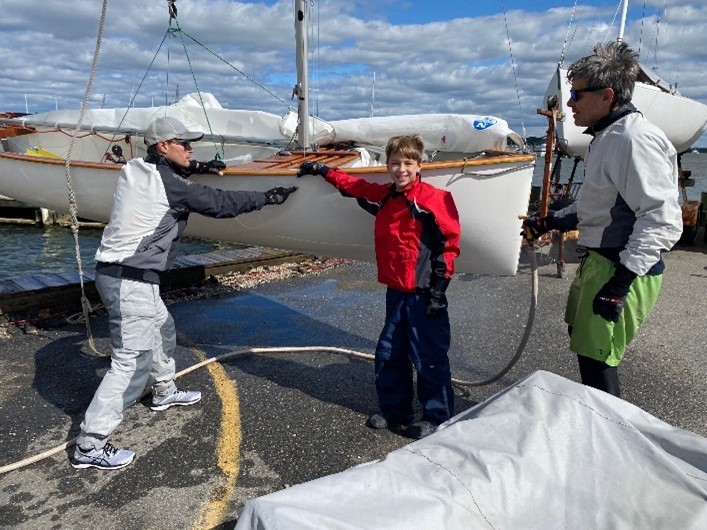
Thistle Oyster Roast Regatta
The Thistle Oyster Roast Regatta is an annual event on Chesapeake Bay by Thistle Fleet 34, hosted at the Severn Sailing Association in Annapolis, Maryland. While there is a physical clubhouse, it only has a small kitchen with minimal storage. Despite this, the Oyster Roast has participated in Clean Regattas for more than seven years and has achieved Platinum since 2022 – our highest level of achievement.

One of the most challenging aspects of hosting a Clean Regatta with minimal facilities is breaking away from disposable plates and Solo cups and switching to reusable dishware. Several years ago, Fleet 34 decided that they wanted to make the switch. They purchased dishware and cutlery at local thrift shops (how sustainable is that!) and packed them in totes. Lacking a permanent place to store the items, a fleet member volunteered to keep the items at their house and bring them to events. And since the facility lacks a dishwasher, a fleet member takes the dirty dishes to run through their home dishwasher.
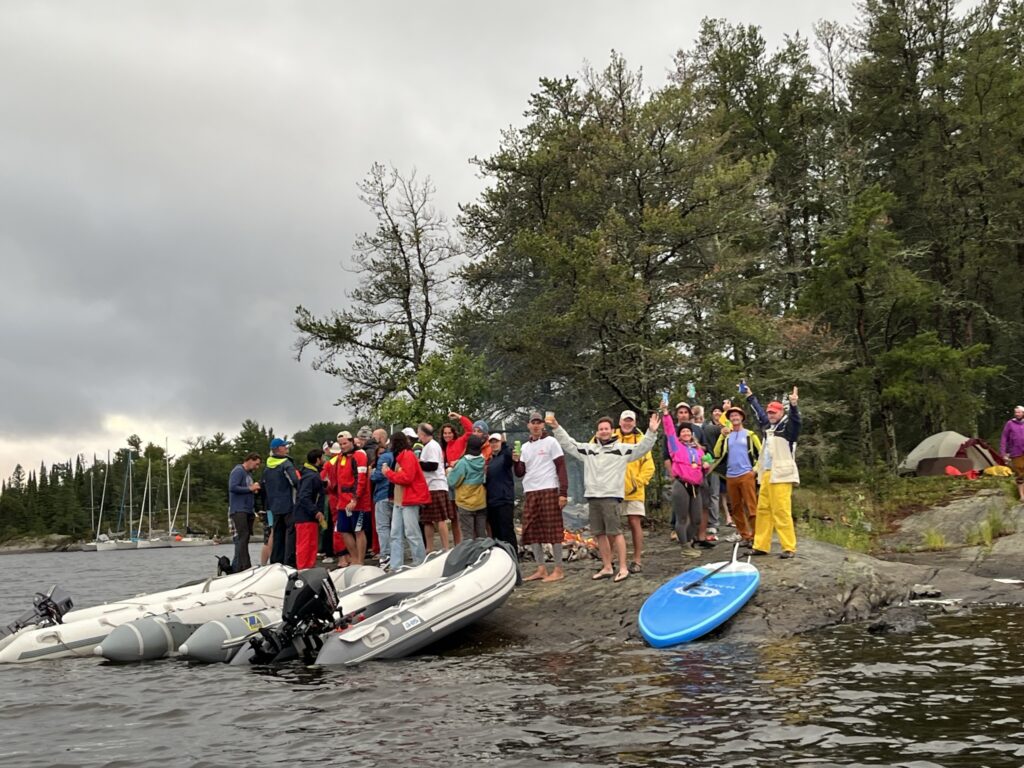
Lake of the Woods Sailing Association Regatta
The Lake of the Woods International Sailing Association, or LOWISA for short, hosts an annual regatta that’s unlike any other! This weeklong event includes six days of racing or cruising, stopping in a different bay each night on the beautiful Lake of the Woods, Ontario, Canada. The event also includes a lay day at a local lodge. With all these moving pieces, achieving the Clean Regattas best practices can be a challenge.
Sailors for the Sea Skipper Elizabeth Harries developed the sustainability program for the event, and has seen great success with it, achieving Clean Regattas Gold Level Certification in 2021 and Platinum in 2022 and 2023. “LOWISA is different from most events as we aren’t racing the same course location each day and docking at the same place each night,” Elizabeth said. “Our challenges revolve around having upwards of 50 boats living on the water for a week outside of civilization and services.”
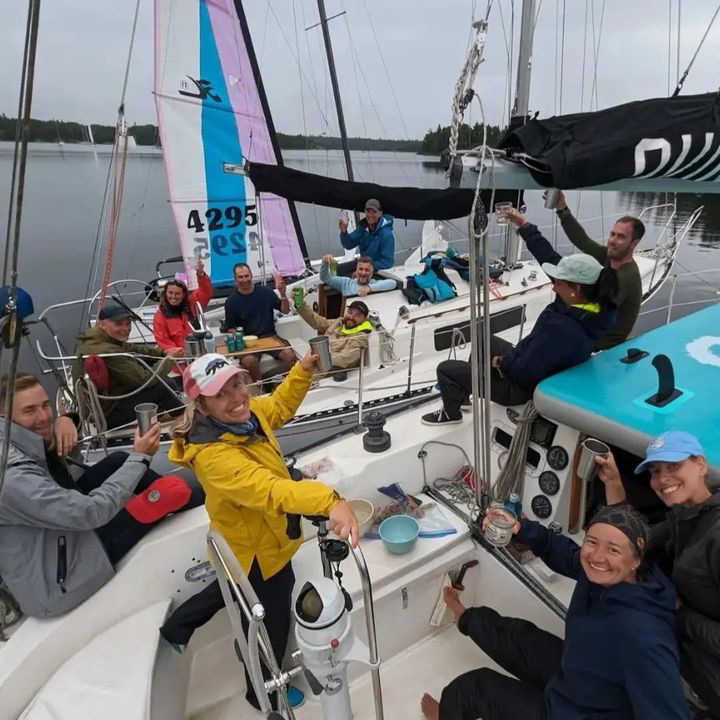
With an event like LOWISA, there are many aspects outside of the organizers’ control. It’s more than hosting a lunch buffet or an awards party – it involves participation from each crew for multiple days. “Adopting sustainable practices is more than saying no to straws at events, but fundamentally changing people’s habits and how they live on the water,” Elizabeth said. “This type of change is challenging as most people are resistant to changes especially if it’s not inwardly driven. We’ve focused on making sustainability fun, exciting, and sharing as much information as possible to encourage folks to choose change.”
Event organizers have made an effort to get sustainability information and expectations to participants well beforehand with a dedicated section on their website.
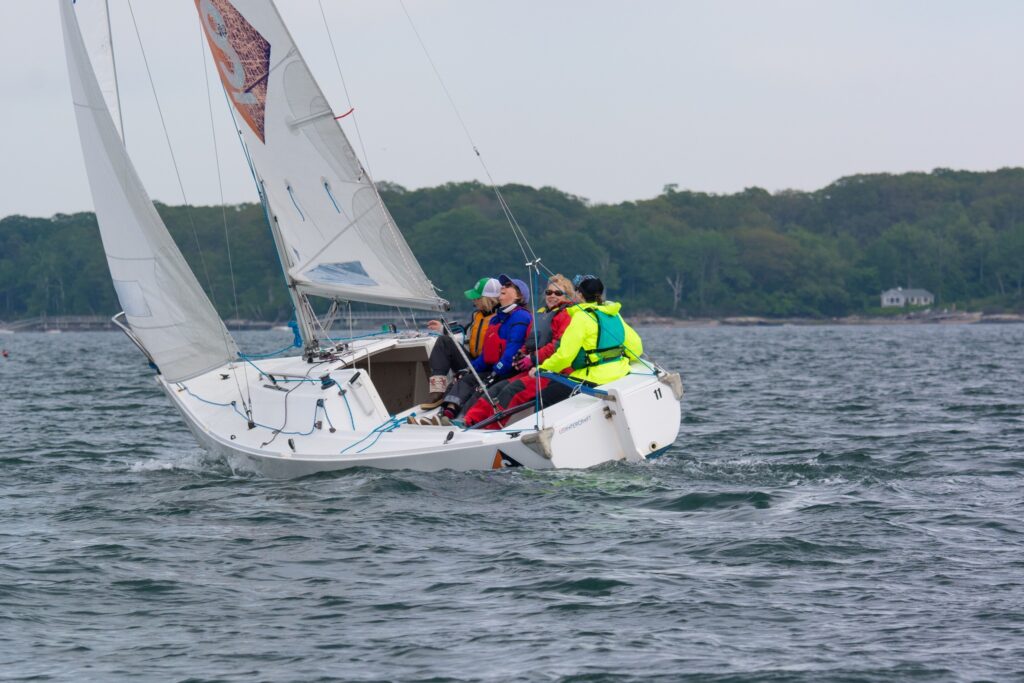
Maiden Maine
Maiden Maine is an annual women’s sailing event held in Portland, Maine, and hosted by Sail Maine. This one-day event pairs beginner sailors with experienced ones for a day of learning on the water, as well as a catered lunch. What’s the challenge? Sail Maine is a community sailing center that has no clubhouse or facilities at all.
Sailors for the Sea Skipper volunteer Victoria Wahlig helped to make this event happen, and shared some insight on how they overcame challenges and even achieved a Platinum Level Clean Regatta. So how did they do it? It turns out that communication is key. “We had to communicate with other organizations and go through the trial-and-error process, looking for businesses to collaborate with,” Victoria said. “By getting some amazing sponsors, we were able to outsource some of the food preparation and get indoor space for related events, such as our screening of Maiden. Often, sharing the regatta’s message and platform made people more inclined to work with us, especially with an opportunity for them to market themselves at the event. People were eager to support Maiden Maine in its mission to empower female sailors.”
What’s the secret?
What makes this all possible? The success of the sustainability initiatives in these events is due to the work of dedicated Green Teams, typically spearheaded by one passionate individual who gets the program moving. For example, through the work of these individuals, the Thistle Class has helped us launch the Clean Class program and has grown their Clean Regattas participation class-wide by an astounding 420%. Just as impressive, over the course of the last five years, the LOWISA Green Team has managed to change the culture of the event into one that truly embraces sustainability and the Clean Regattas best practices.
While not having a clubhouse or other dedicated shoreside facilities can certainly present challenges, as Maiden Maine organizers can attest, with creativity, communication and a supportive team, high-level Clean Regattas are achievable.


